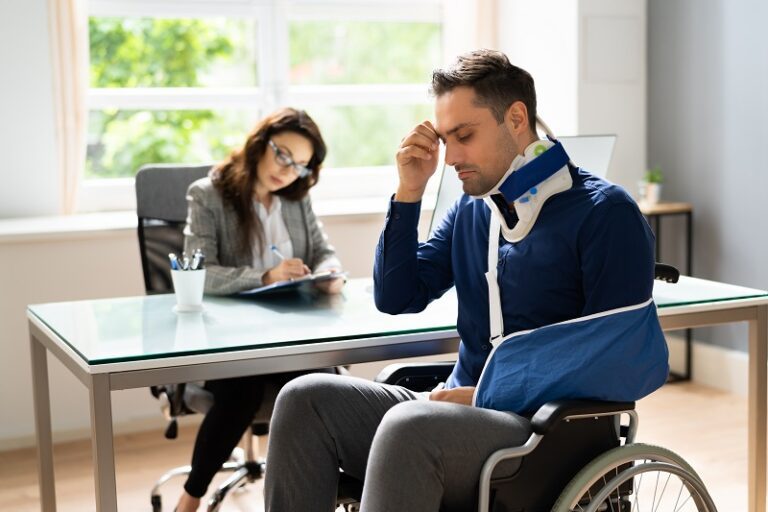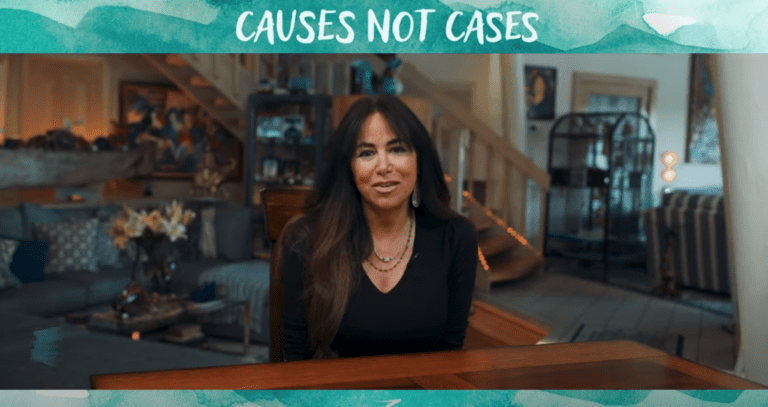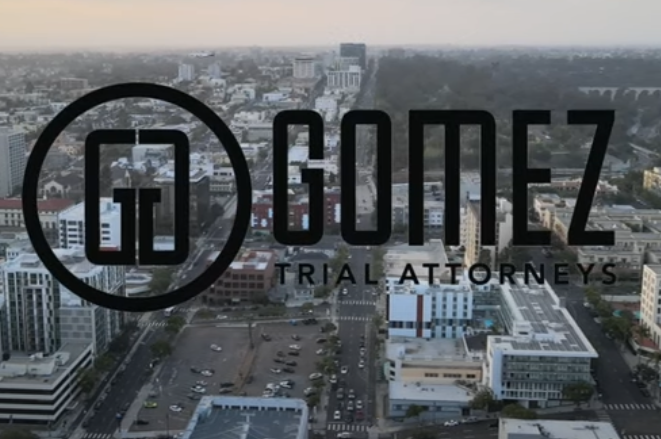 As a motorcyclist, a simple accident can change your life. Motorcyclists are among the least protected drivers on the road. Those vulnerabilities allow a car or truck driver to seriously injure you, while they drive away unscathed. When a vehicle turns into your path or bumps you from the rear, it may cause catastrophic injuries. If you sustain injuries because of their actions, it’s vital to pursue justice against the responsible party.
As a motorcyclist, a simple accident can change your life. Motorcyclists are among the least protected drivers on the road. Those vulnerabilities allow a car or truck driver to seriously injure you, while they drive away unscathed. When a vehicle turns into your path or bumps you from the rear, it may cause catastrophic injuries. If you sustain injuries because of their actions, it’s vital to pursue justice against the responsible party.
Despite your justifiable reactions to another driver’s negligence, it’s important to reign in your frustration. When a crash impact forces you from your lane of travel or knocks you to the ground, you must consider your safety, and your personal and legal interests first.
Injured in an accident? Get a real trial lawyer. Get Gomez.
Call for Emergency Assistance
Motorcyclists often sustain injuries even in a low-speed crash. If a vehicle impact overturns your motorcycle or ejects you to the pavement, you should seek immediate medical assistance. If you can, move out of the road, get to a safe spot, then dial 911 immediately. If you don’t have access to your phone or it’s inoperable, ask a bystander to make the call. When you speak to a 911 operator, make sure they understand that you require immediate medical assistance and police response. You will save the delay of waiting for a police officer to decide at the scene.
If an EMT arrives before a police officer, don’t hesitate to leave. When you’re injured, you must think of yourself first and seek the medical treatment you need. The officer will receive the information about your location and connect with you at a later time. He will probably tow your motorcycle, but you can always retrieve it later.
The Law Requires Police Reports for Accidents With Injuries
When someone is injured in an auto accident, you must report your accident to a law enforcement agency.
A Police Report Is Formal Proof of Your Accident
If you decide not to make a police report, reconsider your decision. A police officer’s formal report documents the accident. It provides important driver and vehicle details. Insurance companies often require a police report, because it proves that the accident happened. However, a police officer won’t necessarily influence your insurance company’s decision about who is at fault.
Never Admit Fault to Anyone
Accidents are frustrating and stressful, especially during those critical post-accident moments. It’s important to monitor your reactions and responses. When you consult with a legal representative about your accident, he or she protects your legal interests. In the meantime, you must be careful not to say or do anything that jeopardizes your ability to recover damages. Before you speak to anyone, consider the most important rule:
Never Admit Fault!
When you’re dealing with post-accident stress, you must avoid polite, self-blaming behavior. Never admit that an accident is your fault, even if you think it is. Don’t say, “I’m sorry” or use any words that sound like an apology. People often perceive apologetic statements as an admission of guilt.
Never admit fault or say anything that sounds like an admission.
- Fault is a legal issue that requires knowledge of the other driver’s actions, laws, negligence, and other complex issues.
- When you apologize or admit fault, someone is always listening. Your statements will likely end up in a police report.
- Witnesses and bystanders will believe that your admission is a true statement because it came from you.
- A simple apology is usually harmless. When it’s a spontaneous statement made after a serious accident (a res gestae statement), it becomes a legal issue. When analyzing liability, these types of statements become meaningful, because a person makes them before they have a chance to concoct a false story.
- Long after you’ve recovered from your injuries, your spontaneous statements will come back to haunt you. You will hear them repeated when you make an insurance claim. If you file a suit to recover damages, you will hear your words during a deposition or in a courtroom.
- When a witness hears what sounds like your admission of fault, they sometimes rethink what they thought they saw.
- Anything you say can jeopardize any future insurance claims or lawsuits.
- Saying nothing is an important way to protect your legal rights until a motorcycle accident attorney intervenes on your behalf.
Conduct an Investigation While You’re Waiting for the Police to Arrive
After you’re involved in an accident, you’ll notice the scene begins changing immediately. By the time the police arrive, everything will look different. The person who struck your cycle will likely pull to the side of the street. Of course, he may get back into his car and leave the scene. Drivers who pulled over to assist you often drive away once they realize you don’t need them. People walking down the street continue with their activities. Even accident debris scatters as more traffic passes by.
If the other driver injured you, you are the person who most benefits from capturing evidence before everything changes. That’s not always possible when you’re seriously injured, but you can ask someone else to assist you. It’s simple to do if your phone camera still works. You can remain as comfortable as possible and use your camera to capture photos up close and at a distance. If your camera doesn’t work, ask a concerned stranger to help you.
Gather Evidence With Your Phone
- The other driver: Get a photo of the driver, his driver’s license, and his insurance card. If possible, verify the address on his license. Ask the other driver if he sustained injuries. This information comes in handy, especially if the other driver decides to leave the scene without identifying himself.
- Vehicles: Take photos of the other driver’s vehicle to document the make, model, and damaged area. Begin with a photo of the license plate. Photograph the damage on both vehicles to show points of contact and damage severity. Include photos of previously damaged areas.
- Accident scene: Take pictures of skid marks and vehicle debris in the street. Photograph the street to show the layout. Include stop signs, speed limit signs, traffic lights, and other traffic control devices. Take a picture that shows the overall location.
Talk to Witnesses
If witnesses remain at the scene, they might not talk to an investigating officer, but they will probably talk to you. Witnesses don’t always come right out and say that they saw an accident. You must ask the right questions: Did they see what happened? Do they mind telling you what they saw?
If a witness agrees to share their version, ask for their contact information. Your phone is a great tool for capturing names, phone numbers, and email addresses. Ask witnesses (and helpful bystanders who might also be witnesses) to add the information to your phone or have them call your number and create a new contact.
When you gather information before the police arrive, you preserve vital evidence before it slips away. You also provide a stronger frame of reference for your liability insurance company and your motorcycle accident attorney.
File a Report With the DMV Within 10 Days
If you decide to bypass contacting the police, you must still meet the filing requirement.
You must submit a report under these circumstances:
- Over $1,000 in property damage
- A person sustains fatal injuries
- A person sustains any injury, even minor ones
Your liability insurance carrier must sign off on your report. The SR-1 report confirms that you have liability insurance and shows your compliance with the law.
Contact Your Motorcycle Insurance Company
You must report your accident to your insurance carrier, even if you believe the other driver was at fault. There are several important reasons for reporting a claim.
Your Policy Requires It
Insurance companies require that you report accidents as soon as possible after they occur. They will investigate the accident and determine if you are liable for the other driver’s damages. If you don’t report the claim and it jeopardizes your insurer’s legal rights, they may choose to decline coverage for your accident. Alternatively, they may reserve their right to investigate the claim and deny coverage at a later time.
They Must Set Claim Reserves
Insurance companies want to know if there’s potential for you or the other driver to make a claim. If you have Collision or Medical Payments coverage, they must set up a claim file to handle your payments. If the other driver decides to file suit against you, your insurance company wants to know the liability and damage issues ahead of time. Insurers have a legal responsibility to set claim reserves as they affect their profits and losses.
You Might Have An Uninsured Motorist Claim
If the other driver has no liability insurance to pay your damages, uninsured motorist coverage pays your injury claim.
If you have the coverage, it applies under these circumstances:
- The negligent driver didn’t have a liability insurance policy or a bond when the accident occurred
- The driver had a policy but the insurer denied coverage or became insolvent
- The person who injured you left the scene unidentified
Uninsured motorist coverage isn’t mandatory everywhere, but insurance companies may give you the option of purchasing the coverage. When you have UM coverage and a negligent driver injures you, your insurance company fills the liability carrier’s role. They pay your injury claim based on the other driver’s legal responsibility. You negotiate a UM settlement just as you would have negotiated a claim with the other driver’s liability insurer.
Cooperate With Your Insurance Company
When you’re injured in a motorcycle accident, insurance companies have the money you need to get on with your life. It’s not always easy to settle a claim, not even with your own insurance carrier. Both your insurer and the other person’s insurer will want the information for their claim files. You don’t have to provide information to the liability carrier until you’re ready. With your own insurer, you don’t have a choice.
Both insurers need your statement about the accident. They also need your medical bills, doctor reports, and vehicle estimates to reserve their case files and determine their liability exposure. You must provide those items to your insurer because you have a written agreement that mandates cooperation. If you don’t cooperate, your insurer can refuse to pay your claim. To protect yourself, consider routing all communication with insurance companies through your motorcycle accident lawyer.
Consult an Attorney for Guidance
Before you provide a recorded statement or mail in all of your medical records and reports, consult with a motorcycle accident attorney. In the same way that spontaneous post-accident statements sometimes jeopardize your legal rights, improperly-worded explanations cause similar problems. An attorney can discuss the issues with you and intervene on your behalf.
Contact a Motorcycle Accident Lawyer
When you’re injured in an accident, people around you tend to offer unsolicited advice. Before you make a decision based on what a friend or relative says, consult with a legal professional. Motorcycle accident attorneys recommend that you contact them as soon as possible after your motorcycle accident. If you’re hospitalized or recovering at home, attorneys arrange virtual or phone consultations. They can’t provide all the answers immediately, but they listen to your story and answer your questions. They explain their strategy for investigating the legal issues and evaluating your injuries.
Motorcycle accident attorneys work with injured clients every day. They intervene on their clients’ behalf with insurance carriers, self-insured commercial entities, and independent investigators. They protect their clients from the people who want to settle their claims for the least amount possible.
Questions and Answers About the Aftermath of a Motorcycle Accident
As you heal from your motorcycle accident injuries, you have a lot to consider. If you’re not quite 100 percent, you want to fast track your recovery so you can get back to normal. If you’ve been off work for a while, you want to do what it takes to reenter the job market. If your injuries caused impairments, your future depends on re-learning everyday skills. If you haven’t already taken a ride on your motorcycle, you want to make sure it’s fully repaired and ready to roll.
As you transition through the necessary recovery stages, you also deal with financial issues. If you couldn’t work during your recovery, your money is probably getting tight. You will eventually have to address a stack of unpaid medical bills, household expenses, and past-due notices. That’s difficult to do when you have no funds to pay them. If you’re struggling to live on disability pay, you’re probably wondering what happens when your benefits run out.
Money is often at the heart of many post-accident concerns. When you finally feel ready to move forward, you naturally think about settling your injury claim. If you’re ready to negotiate a settlement, it’s time to answer some critical questions.
How much time do I have to settle my claim?
Different states have different deadlines—the California Code of Civil Procedure, for example, has a two-year statute of limitations that applies to motorcycle accident injury claims. If you don’t take action before the statute of limitations runs out, you may lose your right to make a claim.
The liability insurer won’t tell you when your time is almost up. Unless you’re actively negotiating with a liability insurer, they won’t contact you to let you know that your statute of limitations is about to run out.
They do this for several reasons:
- An insurance company has no duty to tell you unless your claim is based on a written agreement. An uninsured motorist claim is one example of this, because your policy is a contract.
- If the insurer tells you about your statute of limitations, it’s usually considered as acting in the capacity of a legal advisor. Most insurers avoid passing on any information that is usually received as legal advice.
- If an insurer is maintaining contact with you and they don’t tell you, it’s often considered an act of bad faith. To avoid the appearance of bad faith, some insurers simply withdraw from active negotiations or conversations months before the statute of limitations runs.
- An insurer must protect its insured. They can’t advise you of your statute of limitations. It may motivate you to file a lawsuit against a person or business they’re supposed to protect.
- Insurers understand that injured people don’t always want to file a claim for damages. Some people just want their medical bills paid, even if they have to go through their own insurance company. As long as they aren’t having financial difficulties, some people simply walk away. When that occurs, insurers usually wait a reasonable period after the statute of limitations runs and close out the case file.
You have to take action to avoid the statute of limitations deadline. You should never place yourself in a position where you’re scrambling to file your claim just before your statute of limitations expires. When you’re seriously injured, of course, you need time to recover, but that doesn’t change the time requirement.
When you work with an attorney, you don’t have to worry about statute of limitations deadlines. Attorneys maintain a calendar to track critical dates and avoid timing problems. They negotiate your case with the responsible parties and their representatives. If they can’t reach a fair settlement, they allow a cushion of time in which to prepare and file a lawsuit on your behalf.
Will the insurance company pay my bills and wait until I’m ready to settle?
Most liability insurers will not pay your claim one bill at a time. Their primary goal is to get your name on a full and final settlement release.
Insurers take this position for several reasons:
- They must take the position that protects their insureds. If they pay your medical bills and don’t obtain a release of all claims, you may still file a lawsuit.
- When an insurer pays your medical bills, it minimizes your sense of urgency and reduces the pressure to settle immediately.
- Unpaid bills become a valuable negotiation tool. When you need money, an insurance claim negotiator knows that you might accept a lower offer than you should.
I can negotiate my claim, but should I?
No. Even if you consider yourself a shrewd negotiator, there’s far more to it than that.
You understand your pain and suffering better than anyone. You can talk about your discomfort, your inconvenience, and your disabilities. You know how your injuries affect your life and your family. These are key elements of your claim’s value and they’re excellent talking points. But, you can know every detail about your pain and suffering and still have no idea about their settlement value. Attorneys don’t know until they review the medical reports and do the research.
When an insurance company offers you a settlement, it often seems like a generous sum. That’s especially true when you have a pile of unpaid bills and need money fast. If you don’t know about past jury verdicts or what insurers have paid for similar types of injuries, you’ll be negotiating with a distinct disadvantage.
Should I settle my claim if I will always need medical care?
 You should resolve your claim once you’ve reached maximum recovery. If you must undergo treatment for the rest of your life, future costs become another element of your claim. A settlement reimburses you for your incurred medical treatment, lost wages, and other accident-related expenses. It pays for pain, suffering, and other emotional, psychological, and lifestyle disruptions. While it’s a good idea to wait until you’re completely 100 percent, if that’s not possible, your settlement should include money for your anticipated future losses as well.
You should resolve your claim once you’ve reached maximum recovery. If you must undergo treatment for the rest of your life, future costs become another element of your claim. A settlement reimburses you for your incurred medical treatment, lost wages, and other accident-related expenses. It pays for pain, suffering, and other emotional, psychological, and lifestyle disruptions. While it’s a good idea to wait until you’re completely 100 percent, if that’s not possible, your settlement should include money for your anticipated future losses as well.
Economic experts provide the expertise necessary to calculate a settlement based on future expenses. They determine the potential costs and reduce them to present-value. You still have to negotiate that part of your claim based on your expert’s calculations.
Some insurers set up future payments with structured settlements. When a client has ongoing needs, insurance companies sometimes negotiate a settlement that provides immediate payments and ongoing benefits.
Structured settlements also work well for an injured person who wants to make sure they have a future income.
- The parties execute an annuity agreement with negotiated provisions: timing, payment amounts, and expiration conditions.
- To eliminate conflicts of interest, an independent broker usually places the annuity with an insurance company that’s unrelated to the negotiating liability insurer.
- A portion of the settlement amount funds the structured settlement.
- The injured person receives an initial lump sum payment that’s large enough to take care of their medical bills, immediate needs, and wants.
- The injured person’s motorcycle accident lawyer receives a contingency fee for their work on the case.
Is the insurance company investigator watching me?
Yes. It may sound a bit over-the-top, but it’s probably true. When you sustain a serious injury, the insurance company has a stake in everything you do. Before they enter into serious negotiations, they want to know if you’re as injured or disabled as you say. They obtain medical bills and reports from your treating physicians. They sometimes insist that you undergo an independent medical exam, but they usually want to know more.
Insurers do whatever they can to independently verify or disprove your injuries and disabilities. That often includes checking up on you when you least expect it.
If you think someone is watching you, they probably are. In fact, it’s often more than just watching.
- Activities checks: Insurance company claim representatives or independent investigators sometimes watch you from their car or during a walk through your neighborhood. They watch to see if they can see you coming or going. They try to catch you performing chores, picking up your mail, or working in your garden. They look for any sign that confirms that you’ve recovered more than you’re willing to admit.
- Video surveillance: When an investigator watches you, they usually keep a video camera handy. They consider your claimed injuries and watch to see if you do something a person with your impairments shouldn’t do. Of course, they capture it on video.
- Neighborhood check: If encouraged, at least a few of your neighbors will talk about you behind your back. Even when they don’t know you very well, neighbors tell a total stranger about you, your injury, your job, your family, and your daily activities.
- Social media investigations: Tech-savvy investigators don’t have to visit your neighborhood. They track your social media activities and observe you on Facebook, Twitter, Instagram, Tik-Tok, and other social media sites. They don’t usually require your permission, and they don’t always have to wait for you to acknowledge their friend request. If you have lax security settings, an investigator easily tracks your business and social activities. They watch you dance, exercise, or whatever you do to entertain and interact with your friends.
- Credit investigations: Some insurers access your credit information. They learn if you’re behind in your bills, still not working, or amassing credit card debt. Why do they need this information? They use it to look for fraud indicators. They also determine if you’re in a financial hole. When they know you need cash, it helps them gauge your settlement potential. They know that if you need money, you will likely settle fast and for a lot less.
How much money is my claim worth?
Each claim is unique. Even when you have the same injuries as another person, you experience those injuries differently. Whether you resolve your case through negotiation, mediation, or trial, your settlement will consider how those injuries affected you. Some insurance companies believe that your treatment is a sound indicator of your injury severity.
Many attorneys evaluate cases using a step-by-step analysis:
- Have their client’s keep a journal documenting their pain and suffering
- Discuss how the injuries affected their lives
- Review medical records, bills, and narrative reports
- Review diagnoses, ongoing treatment, rehabilitation issues, and disabilities
- Research past settlements for clients with similar injuries
- Research prior court judgments for similar cases
In the end, the parties may come together and negotiate a settlement that both sides agree to. If they can’t negotiate a settlement, they often participate in facilitated negotiation with a neutral mediator. In some cases, attorneys must present their evidence during a trial and let a judge and jury decide the value.
How can a motorcycle accident attorney help me?

When you’re seriously injured, you should consult with a legal professional as soon as possible. When you work with a trial attorney, you have an advocate who champions your case from day one. Law firms use their resources to investigate your motorcycle accident, identify the responsible parties, and place them on notice.
Attorneys understand liability and damage issues, and they know how the law applies to the cases they handle. They intervene with insurers on your behalf and make sure you’re compliant with your policy conditions. They work with medical professionals and economic experts to evaluate your injuries. They negotiate your case to a conclusion, and they have no problem presenting your evidence and arguing your case before a judge and jury. Contact Gomez Trial Attorneys today.
Gomez Trial Attorneys
655 West Broadway, Suite 1700
San Diego, Ca 92101
619-237-3490







